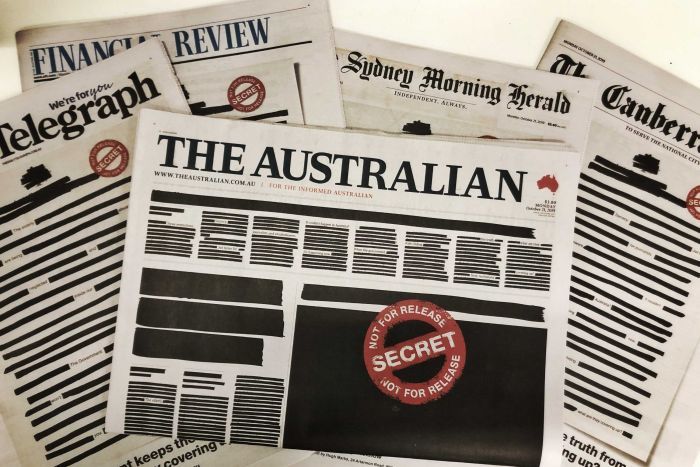
Back in October, the nation’s often-warring media companies joined forces in a rare display of unity. As part of the “Right to Know” campaign, newspaper front pages were blacked out and TV ads ran across the networks.
It was an attempt to harness “people power” behind the cause of press freedom.
The rival bosses of News Corp, the ABC and Nine Entertainment even shared a stage, giving a joint address to the National Press Club.
So, what did this powerful campaign achieve? Absolutely nothing if this week was any guide.
In fact, it feels like we’ve regressed when it comes to transparency.
We’re more in the dark than ever before.
The Gaetjens report won’t be released
On Sunday, the Prime Minister rejected the auditor-general’s finding of blatant political pork-barrelling in the Community Sport Infrastructure Grant Program.
Conveniently, the head of his own Department (who also happens to be his former Chief of Staff) apparently found the independent, highly respected Audit Office was wrong.
According to Scott Morrison, Phil Gaetjens found “no basis for the suggestion that political considerations were the primary determining factor”.
How did Gaetjens reach this surprising conclusion, given the evidence of grants being awarded based on colour-coded electoral margins and the details laid out by the auditor-general?
We simply don’t know. The report isn’t being released. Not even a summary.
The Prime Minister cited past practice for the secrecy. “Reports of this nature,” he said, were “documents of Cabinet” and would therefore remain confidential.
But reports of this nature haven’t always been kept under wraps.
Questions surround Angus Taylor
Those with long memories will recall the “children overboard” affair during the 2001 election.
In 2002 a detailed report into the scandal by, you guessed it, the Department of Prime Minister and Cabinet, was tabled in Parliament. It wasn’t happy reading for then defence minister Peter Reith.
More recently, then head of PM&C Martin Parkinson examined whether any rules were broken when Bruce Billson went from a ministerial portfolio to a lobbying job in 2017.
A letter from Parkinson, explaining his findings, was at least made public.
And just last year Martin Parkinson’s report on the post-parliamentary jobs taken up by Julie Bishop and Christopher Pyne was tabled in full, in Parliament.
The Gaetjens report, by contrast, has been locked away.
And it wasn’t the only thing kept from voters this week.
The Australian Federal Police dropped the case of whether Angus Taylor or his office forged a document as part of a political hit-job on Sydney Lord Mayor Clover Moore.
The AFP concluded a cabinet minister sending the Daily Telegraph a fake document was a “low level” matter and an investigation would chew up too many police resources.
We don’t know if the AFP bothered to interview anyone in Taylor’s office or even determined whether a criminal offence was involved. The Federal Police won’t say.
We’re yet to see any real change
Secrecy also surrounded the damning revelation this week that the Government knew in November its “Robodebt” system was illegal.
No one is prepared to say exactly when the Government was given this legal advice and how long it potentially sat on it.
There was the usual lack of transparency surrounding the annual data dump on political donations too. Donations under $13,800 are simply not disclosed, while those that are revealed are often difficult to trace.
And for good measure, the National Party kept a cloak of secrecy around its leadership ballot.
Michael McCormack clung onto his job, but we don’t know if Barnaby Joyce fell short by one vote or six. No-one is apparently allowed to know.
From time to time, governments talk about transparency and accountability, but there was none on display this week.
The Right to Know campaign was a worthy idea. Sadly, it’s yet to force any real change.


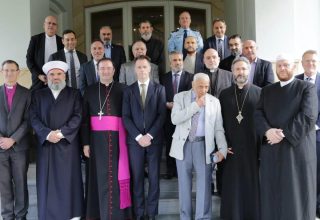


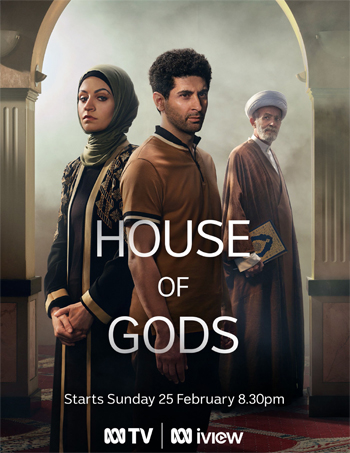

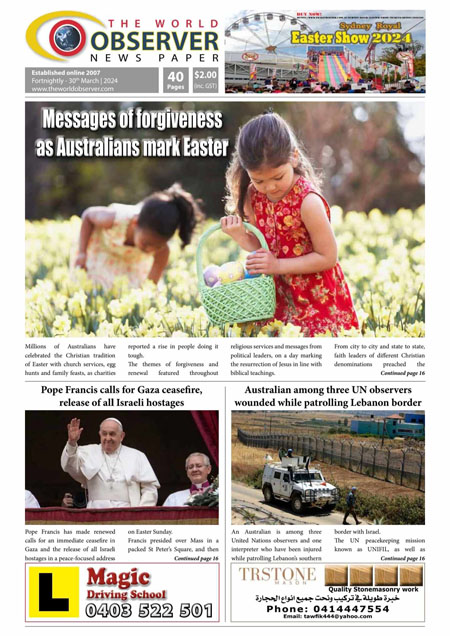
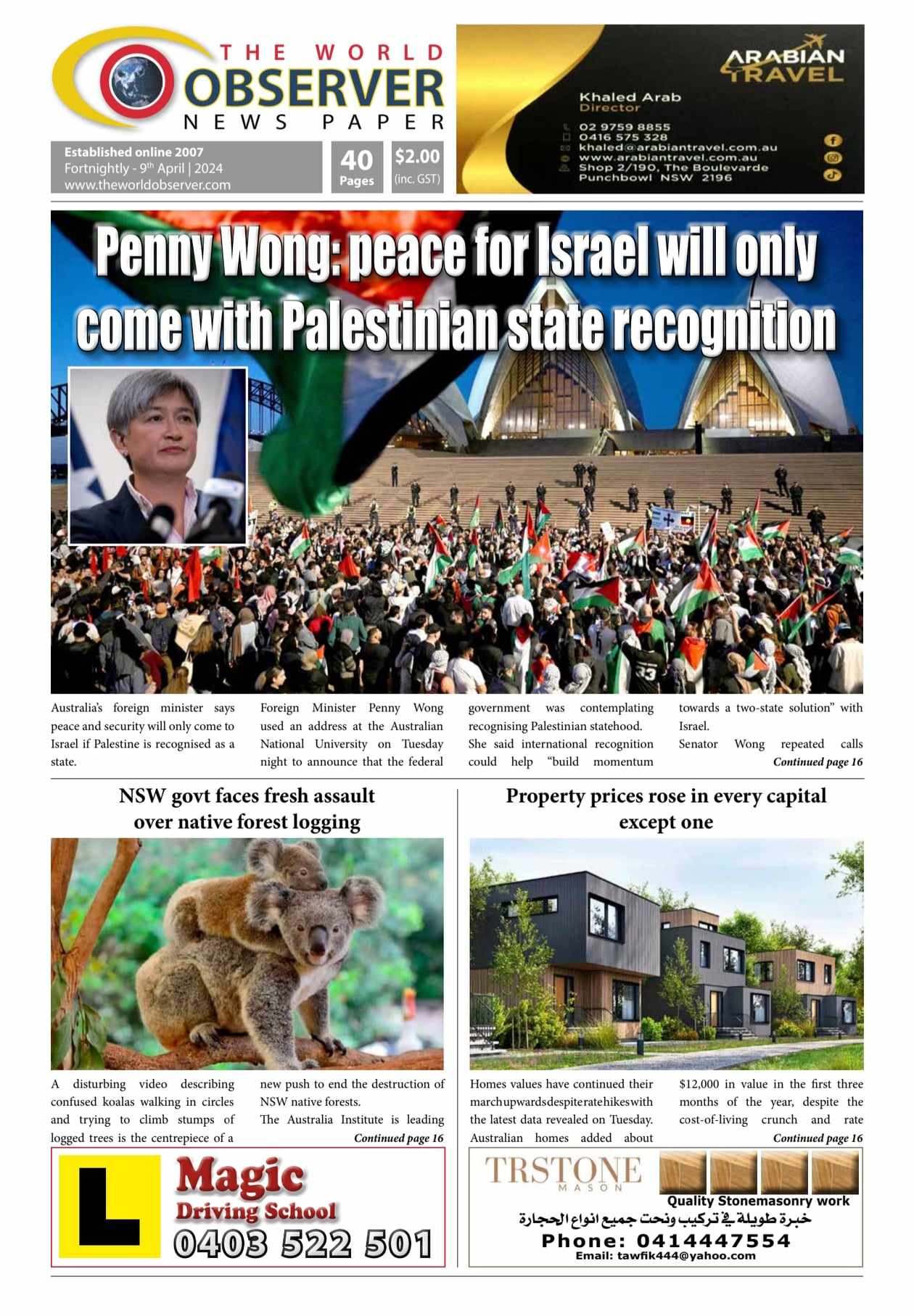

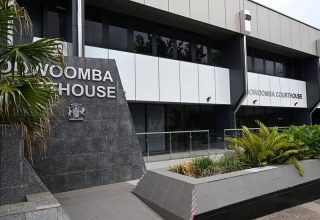





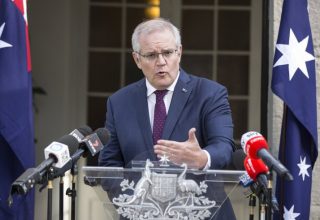
















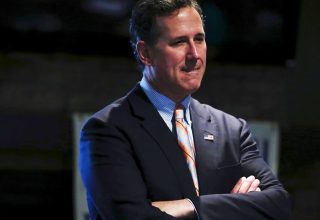
 The World Observer Media produces a daily online newspaper, a daily Arabic online newspaper and a monthly printed Arabic/English magazine and a weekly printed Arabic/English newspaper.
The World Observer Media’s mission is to entertain and educate all generation from the Ethnic Communities in Australia, who are interested in local, national and foreign information.
The World Observer Media produces a daily online newspaper, a daily Arabic online newspaper and a monthly printed Arabic/English magazine and a weekly printed Arabic/English newspaper.
The World Observer Media’s mission is to entertain and educate all generation from the Ethnic Communities in Australia, who are interested in local, national and foreign information. 
